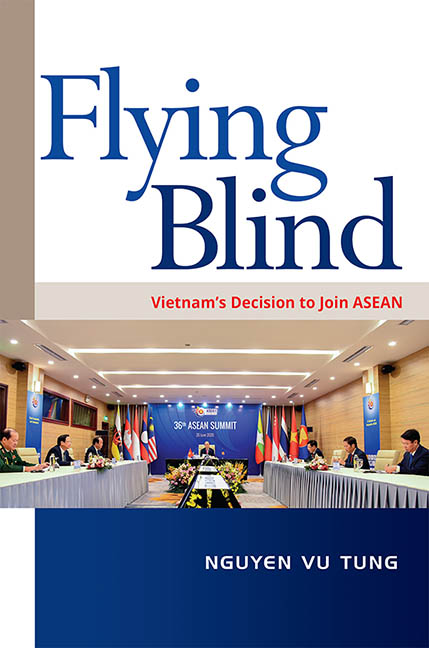Book contents
- Frontmatter
- Contents
- Acknowledgements
- Glossary
- 1 Introduction
- 2 The Paris Agreement and Vietnam: ASEAN Relations in the Early 1970s
- 3 1978 to 1985: Coexistence Between Two Opposing Groups
- 4 Joining ASEAN: Political and Strategic Factors
- 5 Jumping on a Moving Train: Vietnam Joins ASEAN
- 6 ASEAN Membership and Vietnam’s Shifting National Identity
- 7 Conclusion
- References
- Index
- The Author
5 - Jumping on a Moving Train: Vietnam Joins ASEAN
Published online by Cambridge University Press: 08 October 2021
- Frontmatter
- Contents
- Acknowledgements
- Glossary
- 1 Introduction
- 2 The Paris Agreement and Vietnam: ASEAN Relations in the Early 1970s
- 3 1978 to 1985: Coexistence Between Two Opposing Groups
- 4 Joining ASEAN: Political and Strategic Factors
- 5 Jumping on a Moving Train: Vietnam Joins ASEAN
- 6 ASEAN Membership and Vietnam’s Shifting National Identity
- 7 Conclusion
- References
- Index
- The Author
Summary
When Hanoi considered joining ASEAN, the organization had been seen as one of the “most successful experiments in regionalism in the developing world.” But from the mainstream liberal institutionalist point of view, even now, ASEAN is not an exemplary international organization with strong institutional frameworks. ASEAN is a loose organization and its decisions, which are made by consensus, are not legally binding. In addition, ASEAN cooperation is not about collective defence or collective security. Moreover, ASEAN was not instrumental in supporting the economic development of Vietnam, and as the 1997 financial crisis unfolded, ASEAN itself experienced serious economic problems.
These facts would lead one to the following question: What had Hanoi known about the organizational structures and institutional arrangementsof ASEAN, about its principles and norms, its cooperative projects, and especially its limitations before it decided to join the organization? The answer to this question may help clarify several points. For example, if Hanoi had believed that ASEAN had serious economic and security limitations, it would have surely been more unwilling to consider membership; or if ASEAN were supranational in nature, Hanoi would have been more reluctant to join the organization; and if it had not been easy to understand the organizational structure of ASEAN and its working procedures, and if membership had entailed major political and economic changes, the process of joining ASEAN and adjusting to the new cooperative environment would have been longer. In short, this chapter will examine whether Hanoi had a good understanding of ASEAN before it decided to join the organization, and to what extent this understanding contributed to the decision in favour of, and the subsequent preparations for, Vietnam's membership of ASEAN.
THE CHRONOLOGY OF JOINING ASEAN
According to a MOFA Southeast Asian and South Pacific Affairs Department report, by mid-June 1991, the decision to join the Bali Treaty had been made, and Hanoi officially stated that it was ready to accede to the Treaty. The department's activities, listed in weekly working schedules, showed that the accession was one of the main focuses during this time.
- Type
- Chapter
- Information
- Flying Blind , pp. 134 - 168Publisher: ISEAS–Yusof Ishak InstitutePrint publication year: 2021

